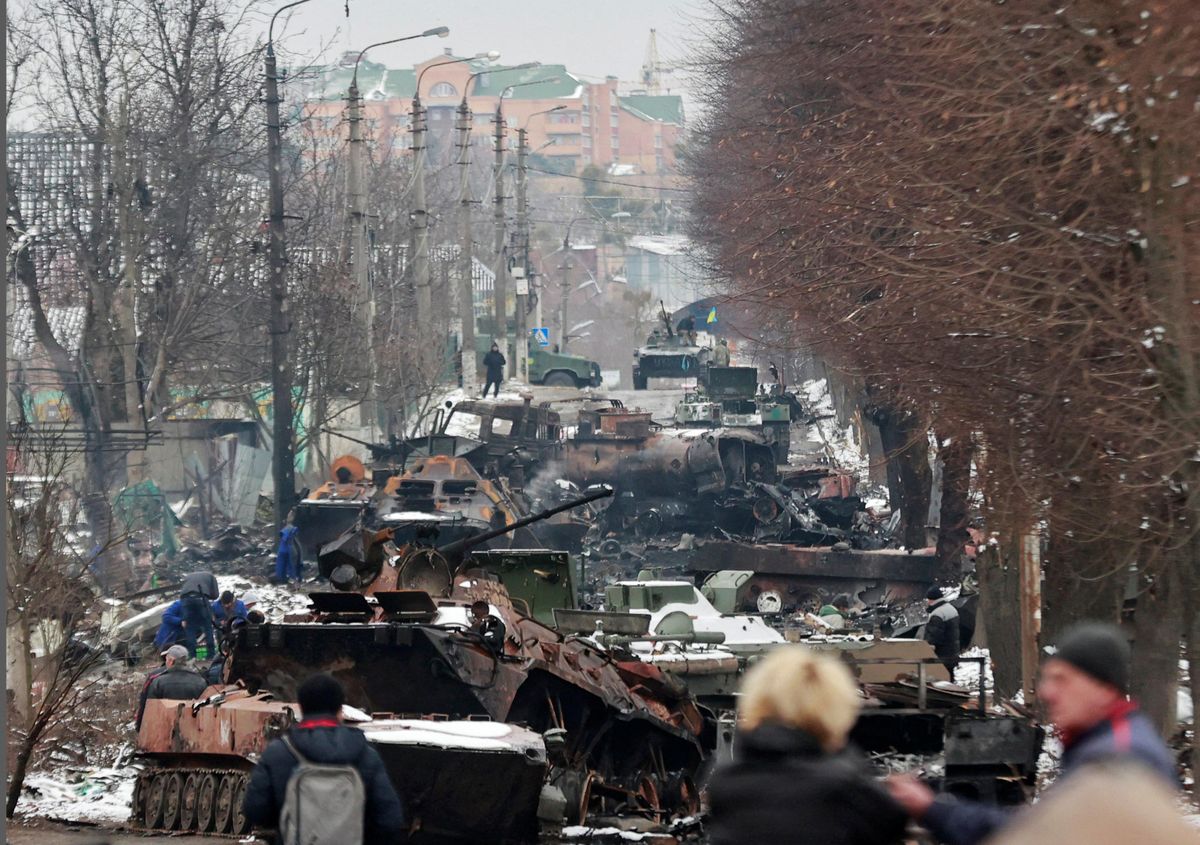In the early hours of Friday morning, Russian troops seized control of Europe's largest nuclear plant in southeastern Ukraine. After some raised the alarm of a potential "Chernobyl moment," international monitors said the initial blaze had been extinguished, and there was no indication that radiation had spilled.
Just a day after reportedly taking the southern city of Kherson, Russian forces on Thursday encircled the strategic Black Sea port of Mariupol in the southeast. Taking this city would not only diminish Ukraine’s access to international shipping lanes, but it would also nearly complete a “land bridge” extending from mainland Russia to the Crimean peninsula. Further west, the city of Odessa, Ukraine’s largest port, readied itself for a Russian assault.
Zelensky invites Putin to sit down at a normal-sized table with him. The Ukrainian president, speaking to journalists Thursday, invited his Russian counterpart to talk things out. “I don’t bite, I’m a normal dude,” he said, “what are you afraid of?” Putin, meanwhile, delivered a stone-faced message to the Russian people claiming that everything is going to plan, praised the heroism of Russian troops fighting against “nazis,” and reiterated his belief that Ukrainians and Russians are “one people.”
Ukraine and Russia have agreed to humanitarian corridors in several areas of the country, in order to allow civilians to leave conflict zones. Already more than 1 million people have fled Ukraine, making this the worst refugee crisis involving European countries since the Yugoslav wars of the 1990s.
US-Russia hotline set up. The two sides have set up what is known as a “deconfliction hotline,” which is meant to help avoid military miscalculations that could lead to a direct confrontation between the two superpowers. A similar speed-dial was set up between them in Syria several years ago. Given that the US and Russia have the world’s two largest nuclear arsenals, this is a good thing.
US expands sanctions on Russian oligarchs. Washington announced new asset freezes and travel bans on a slew of powerful Russians close to Putin. Those on the blacklist include media tycoon Alisher Usmanov, Kremlin spokesman Dmitry Peskov, and several of Putin’s old judo buddies and former colleagues from his KGB days, all of whom have grown fabulously wealthy during his reign.





